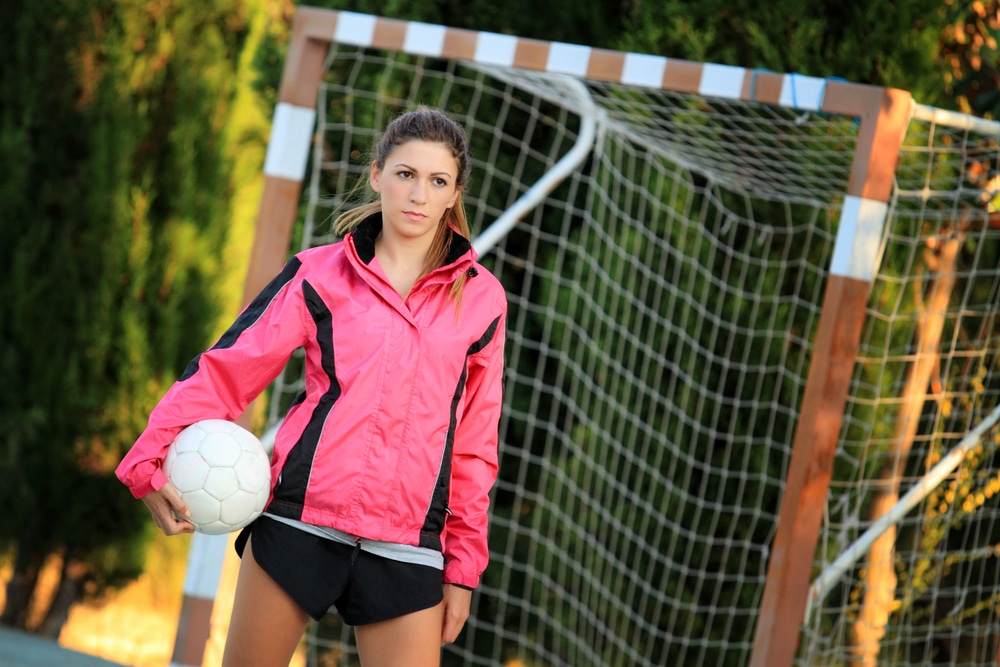Kick that day-job to the curb and make a career out of your passion. If your goal is to work in the area or sports or transfer your skills as an athlete to a professional, a postgrad in Sport Psychology could be right up your alley.
Contemplating a job in Sport Psychology? Whether it’s research, coaching or consulting that tickles your fancy, Dr. Cíara Losty is the woman you need to speak to. An accomplished expert with more experience than you can shake a hurley at, Cíara is presently the course leader for the MSc in Applied Sport and Exercise Psychology in WIT. Here at Postgrad.ie, we had the opportunity to chat with Cíara about this excellent programme as well as glean a few tips for athletic success along the way.
What first interested you when it came to the world of sports?
For me, I’ve also been a sports fanatic, interested in all types of sports and people. Studying Sport Psychology was the perfect combination for me.
How important is state of mind when it comes to achieving athletic success?
Success can begin and start with your mind and maintaining the right emotional state at the right time is crucial. Learning how to perform optimally for competition can be a challenge. There are often numerous distractions and unique circumstances surrounding most competition events, many of which, athletes are unfamiliar with.
What are some important techniques that athletes should bear in mind while training?
Leading up to a competition, it is important to provide athletes with the mental tools so that they can learn to manage their own performance. They need to create their optimal level of mental readiness. Strategies such as goal setting, imagery, thought management, and emotional control can be learned through practical exercises that incorporate these elements into the athlete’s practice and daily routines. Athletes and coaches should also learn to apply the tools to develop refocusing strategies for challenging and unexpected events arising during their performance
What are some common pitfalls when it comes to athletes and their training schedule? What hinders success the most?
Their mind!! An additional part of the preparation for competition involves anticipating potential distractions and impediments to performance and focus. There is significant power in having anticipated an issue before it happens. If something occurs that has already been identified, then the energy and impact of the issue is lessened and an awareness of alternative responses to the situation heightened. Plans need to be established ahead of time for how to deal with the major distractions. Moreover, athletes need to have a general strategy for identifying and coping with the unexpected.
What do you cover on a course like this?
You will cover applied and performance psychology, exercise psychology, independent type studies, and research. Theirs is a range of assessments such as individual and group presentations, combined with essays, case studies, and reports, culminating with a dissertation and a personal and professional portfolio of work.
What is the typical profile of a student on this programme?
Students come from a mixture of backgrounds, from sports science/PE/psychology and from non-traditional backgrounds but have an interest in coaching and sport.
What would be considered as ‘Recognised Prior Learning’?
You can find the exact definition, but really, Learning can be Formal, Non-formal or Informal.
Formal learning is ‘Accredited’ and generally has taken place in a higher education institution. Anything in which you would have received a certificate. This might include a course or part of a course that has been completed. While ‘Non-Formal Learning’ might have happened through work-based training or courses. This means they may have been assessed, but the programme isn’t on the National Framework of Qualifications. Then, finally, Informal Learning (which is also unaccredited) is experience you might have gained through work, such as voluntary sporting and coaching work and life experiences.
What career prospects are there for graduates?
There is a demand for training in this field for those whose ambition is to work in high-performance sport settings. In Ireland and the UK, many of those trained in sport psychology have undertaken roles as performance directors, professional sport coaches and sport management. Thus employability is likely to be strong not just for those who wish to train as practitioners, but for those for whom a postgraduate qualification in this domain augments their other qualifications and professional experience. Many of our graduates are now lecturing throughout Ireland and some have completed PhDs.
Thanks for chatting with us Cíara! Sounds like a fantastic programme. Click this link if you want to read up on what the MSc in Applied Sport and Exercise Psychology at WIT covers.
About Cíara
Cíara is accredited as a Professional Member bythe Irish Institute of Sport Professional Quality Assurance Committee in the area of sport psychology delivery. Cíara was part of team Ireland sport science and medical team for the London 2012 Olympic games. She served as Team Ireland’s holding camp sport psychology support at the London Olympic Games – a role which involved working across all sports with athletes, coaches and team managers. Cíara currently works with a range of Olympic athletes in preparation for Tokyo 2020. Currently Cíara works with modern pentathlon, track and field, jump and flat jockeys and various Gaelic athletic association snr teams. Ciara is the current sport psychology service provide for the jockey pathway. Ciara completed a Doctor of Health Sciences in Psychology through the University of Wales, a MSc (by research) in sport and exercise psychology, in WIT, a Cert. Cognitive Behavioural Skills for Practice (Level 8) and a BA (hons).












Comments